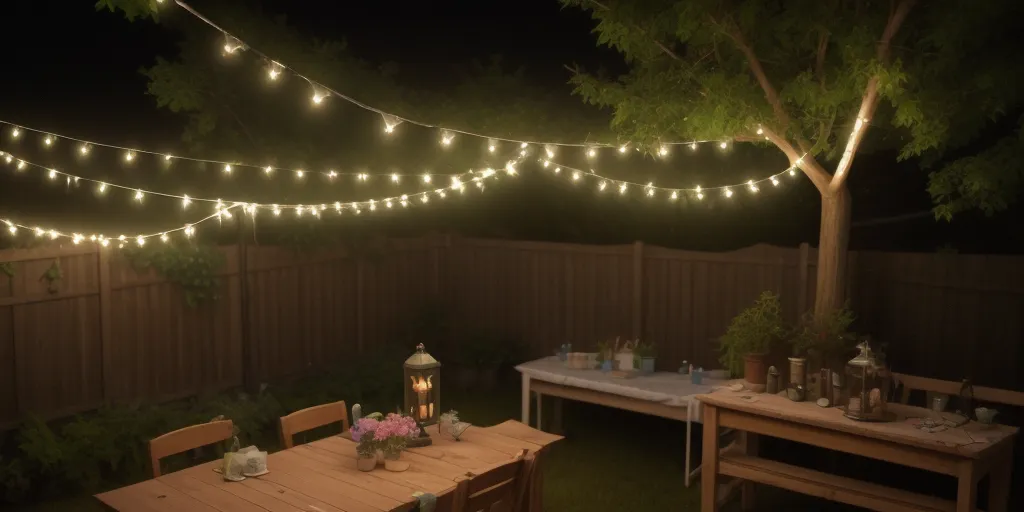How Long Do Solar Lights Stay On at Night?

One of the key considerations when using solar lights is understanding how long they will stay illuminated during the night. The duration that solar lights stay on can vary depending on several factors, including the quality of the solar panel, battery capacity, and the amount of sunlight the lights receive during the day. In this guide, we'll explore the factors that influence how long solar lights stay on and what you can do to maximize their performance.
Commercial-Grade Solar Lights: Extended Operating Time
Commercial-grade solar lights are designed to provide reliable and extended illumination, even in challenging conditions. These lights are built with high-capacity batteries and efficient solar panels, allowing them to stay on for longer periods compared to standard solar lights. Some commercial-grade solar lights can operate for up to 5 nights on a single full charge, making them ideal for locations where consistent lighting is essential, such as public spaces, parking lots, or industrial sites.
These extended operating times are made possible by advanced battery technology and energy-saving features like dimming modes or motion sensors, which reduce energy consumption when full brightness is not needed. Additionally, the robust design of commercial-grade solar lights ensures they can withstand harsh weather conditions while maintaining optimal performance.
Understanding Solar Light Operation
Solar lights operate by converting sunlight into electricity using a solar panel, which charges an internal battery during the day. Once it gets dark, the stored energy powers the light, providing illumination throughout the night. The duration of the light's operation depends on how much energy is stored in the battery, which is directly related to the amount of sunlight the solar panel receives during the day.
Factors Affecting How Long Solar Lights Stay On
Several factors influence the duration that solar lights stay on at night:
- Sunlight Exposure: The amount of sunlight the solar panel receives during the day is the most critical factor. Solar lights that receive full sunlight for 6-8 hours can typically stay on for 8-12 hours at night. If the panel is shaded or if the day is cloudy, the lights may stay on for a shorter period.
- Battery Capacity: The size and quality of the battery also play a significant role. Higher capacity batteries can store more energy, allowing the lights to stay on longer. Over time, batteries may degrade, reducing their ability to hold a charge and shortening the light duration.
- Type of Light: The type of solar light also affects how long it stays on. For example, solar pathway lights typically have lower power consumption and can stay on longer than solar floodlights, which require more energy to produce brighter light.
- Weather Conditions: Weather can significantly impact the performance of solar lights. In colder temperatures, battery efficiency may decrease, and in cloudy or rainy conditions, less sunlight is available to charge the battery fully.
- Energy-Saving Features: Some solar lights come with energy-saving features such as motion sensors, dimming modes, or timers. These features can extend the operational time by reducing energy consumption when full brightness is not needed.
Maximizing the Operating Time of Solar Lights
If you want to maximize the time your solar lights stay on at night, consider the following tips:
- Optimal Placement: Place your solar lights in a location where they receive full sunlight for most of the day. Avoid placing them in shaded areas or under trees, as this will reduce their ability to charge fully.
- Regular Cleaning: Keep the solar panels clean and free of dust, dirt, and debris, which can block sunlight and reduce charging efficiency. Clean the panels periodically with a soft cloth and mild soap.
- Battery Maintenance: Replace the batteries every 1-2 years or when you notice a significant reduction in light duration. Using high-quality, compatible batteries can also help improve performance.
- Energy-Saving Settings: Utilize any energy-saving features your solar lights may have. For example, using a motion sensor setting can conserve energy by only activating the light when movement is detected.
- Seasonal Adjustments: During winter months, when daylight hours are shorter, consider using lights with adjustable brightness or dimming options to extend their operating time.
Typical Operating Times for Different Types of Solar Lights
While the exact duration can vary, here are some general guidelines for how long different types of solar lights typically stay on at night:
- Solar Pathway Lights: 8-12 hours
- Solar Garden Lights: 6-10 hours
- Solar Floodlights: 4-8 hours
- Solar Spotlights: 6-10 hours
- Solar String Lights: 6-8 hours
- Commercial-Grade Solar Lights: Up to 5 nights on a single charge
Final Thoughts
The duration that solar lights stay on at night depends on a combination of factors, including sunlight exposure, battery capacity, and the type of light. By optimizing the placement, maintaining the panels and batteries, and using energy-saving features, you can ensure that your solar lights provide reliable illumination throughout the night.